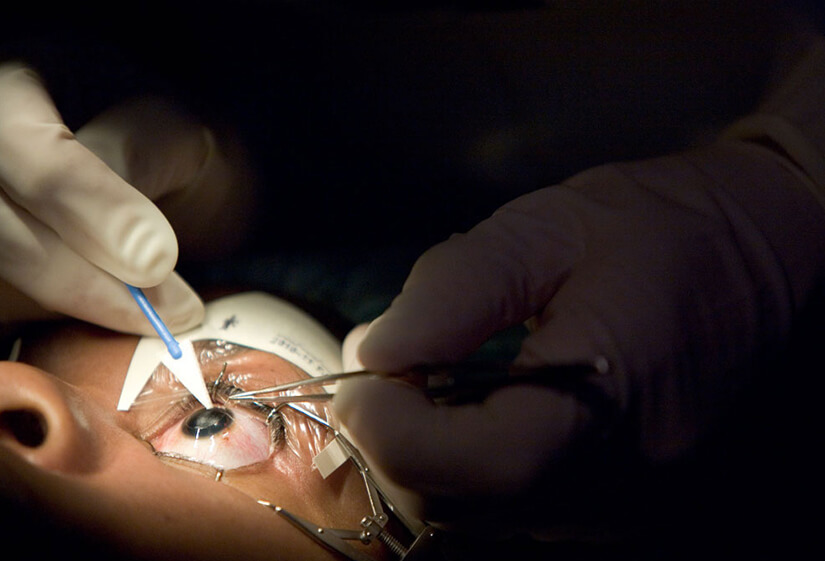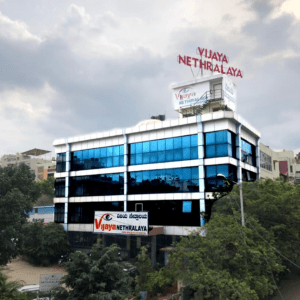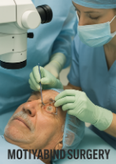Cataract surgery is one of the most commonly performed medical procedures, known for its high success rate in restoring clear vision. However, as with any surgery, it’s important to follow certain restrictions and guidelines during the recovery period to ensure optimal healing and avoid complications. These restrictions play a critical role in protecting the eye and enhancing the healing process after surgery.
In this article, we’ll take a closer look at the post-cataract surgery restrictions, including the dos and don’ts for patients during their recovery phase, along with the cost of the surgery in Bangalore.

1. The Importance of After-Surgery Care
Cataract surgery may seem like a simple procedure, but the healing process requires careful attention. Post-surgery care is crucial to avoid infections, reduce inflammation, and ensure that the new intraocular lens (IOL) stays in place. By following the restrictions outlined by your ophthalmologist, you are helping your eye recover properly and preventing unnecessary complications.
2. Resting and Avoiding Strenuous Activities
Immediately following your cataract surgery, your doctor will recommend you avoid any activities that could put unnecessary strain on your body. These restrictions include:
2.1. Lifting Heavy Objects
Refrain from lifting heavy items during the initial weeks of recovery after surgery. Lifting can increase pressure in your eye, which may negatively impact the healing process and lead to complications.
2.2. Bending Over
Bending at the waist or overexerting your body can also create pressure in your eye. It’s recommended to avoid bending down, especially in the first few days after surgery, to ensure that your eye heals without any strain.
2.3. Physical Exercise
Avoid strenuous physical activities like running, weightlifting, or vigorous exercise for at least a couple of weeks after surgery. Your body needs time to adjust and heal, and excessive physical exertion could disrupt the healing process.
3. Eye Protection and Hygiene aftercataract surgery
After cataract surgery, your eye is particularly vulnerable, and protecting it from harm is essential. These restrictions include:
3.1. Eye Shield While Sleeping
Your doctor will likely suggest wearing a protective eye shield while sleeping to avoid accidentally rubbing or putting pressure on your eye.
3.2. Avoid Rubbing Your Eyes
Even though your eye may feel slightly irritated, it’s important to avoid rubbing it, as this could disrupt the healing process or introduce bacteria, leading to infection.
3.3. Sunglasses for Outdoor Exposure
To minimize light sensitivity, it’s a good idea to wear sunglasses when going outdoors. Direct sunlight or bright lights can irritate your eye and make recovery uncomfortable.
4. Water Exposure Restrictions After cataract surgery
Water can introduce bacteria and other harmful pathogens into the eye, which can lead to infection. For this reason, it’s important to take certain precautions:
4.1. Avoid Swimming
Swimming in pools, hot tubs, or natural bodies of water should be avoided for at least 3 to 4 weeks post-surgery. These environments may contain harmful bacteria that could lead to an eye infection.
4.2. Be Cautious in the Shower
When showering or washing your face, be careful not to get soap or water in your eyes. Avoid splashing water directly into your eye and gently clean around it. Your doctor may recommend using a clean washcloth to wipe your face for the first few days.
5. Limiting Visual Strain
Although your vision will gradually improve, it’s important to avoid straining your eyes too soon after surgery. Here are some guidelines to follow:
5.1. Avoid Prolonged Screen Time
Following cataract surgery, your eyes may take time to adjust to the new lens. Limit time spent on digital devices, such as smartphones, computers, or TV, to avoid eye strain and give your eyes time to heal.
5.2. Reading in Moderation
If you enjoy reading, take breaks regularly, as long periods of reading can cause discomfort. Start with short reading intervals and gradually increase as your eye heals.
6. Avoid Driving Until Clear Vision is Restored
It’s common for vision to be blurry or unstable in the initial days after surgery. During this time, you should not drive. Most doctors will recommend avoiding driving for at least 24 to 48 hours. You can resume driving once you have a follow-up appointment and your doctor confirms that your vision has stabilized enough for safe driving.
7. Medication and Eye Drops
After cataract surgery, your ophthalmologist will prescribe several medications to promote healing and prevent infection. These medications typically include:
7.1. Antibiotic Eye Drops
Antibiotic eye drops are crucial to prevent infection during the healing process. Be sure to follow the prescribed dosage and frequency exactly as directed by your doctor.
7.2. Anti-Inflammatory Eye Drops
Your doctor may also prescribe anti-inflammatory drops to reduce swelling and irritation. These should be used as instructed to help manage any inflammation after surgery.
7.3. Other Medications
In some cases, your doctor may prescribe additional medications for pain relief or to manage other symptoms. Always follow the recommended dosage.
8. Follow-Up Appointments
Follow-up visits are crucial to monitor the progress of your healing and ensure that your eye is recovering well. Typically, you’ll have your first follow-up appointment within the first 24 to 48 hours after surgery, and additional visits will be scheduled over the following weeks and months.
During these visits, your doctor will assess:
- The positioning of the intraocular lens (IOL)
- Any signs of infection or complications
- The improvement in your vision
- Adjustments to your glasses prescription if necessary
9. Long-Term Restrictions
While most restrictions are temporary, there are a few long-term precautions to be aware of:
9.1. Avoid Smoking and Alcohol
Smoking can slow the healing process and increase the risk of complications, while excessive alcohol consumption can interfere with your body’s ability to heal properly. It’s a good idea to limit both during the recovery period.
9.2. Regular Eye Exams
Even after you’ve healed from surgery, it’s important to continue having regular eye exams to monitor your eye health and the condition of your intraocular lens.
10. Cost of Cataract Surgery in Bangalore
The cost of cataract surgery in Bangalore can vary depending on factors like the type of surgery, the hospital or clinic, and whether you opt for advanced lenses like premium IOLs. On average, the cost of cataract surgery in Bangalore ranges from ₹25,000 to ₹75,000 per eye.
10.1. Factors Influencing the Cost
- Type of Lens: Premium IOLs (like multifocal lenses) typically cost more than standard monofocal lenses.
- Hospital or Clinic Choice: The reputation of the facility and the expertise of the surgeon can affect the overall cost.
- Post-Surgery Care: Additional costs for follow-up visits, medications, and other post-surgery treatments may add to the total cost.
10.2. Insurance Coverage
Many insurance plans cover cataract surgery, but it’s essential to confirm the details with your provider beforehand to understand the extent of coverage and any additional out-of-pocket costs.
Conclusion
Cataract surgery is a life-changing procedure that can greatly enhance your vision and overall well-being. However, adhering to post-surgery restrictions is essential to ensure a smooth recovery and to protect your eye from complications. By following your doctor’s advice on rest, eye protection, and activity limitations, you can help ensure the best possible outcome.
Remember, every patient’s recovery is different, so it’s crucial to communicate with your healthcare provider throughout the process for personalized guidance and advice.
Author Details:
Dr. Sushruth Appajigowda holds a prominent position as a Cornea, Cataract, Glaucoma, and LASIK Surgeon in Bangalore. He serves as the chief Cataract and Refractive surgeon at Vijaya Nethralaya Eye Hospital, Nagarbhavi Bangalore. Renowned as one of the finest LASIK surgeons nationwide, he brings with him over 12+ years of experience across multiple LASIK platforms, including ZEISS, ALCON, SCHWIND, AMO, and Bausch and Lomb. Having successfully conducted over 5000 LASIK procedures, Dr. Sushruth holds the title of a Certified Refractive Surgeon and a Fellow of the All India Collegium Of Ophthalmology. Furthermore, he stands as a distinguished speaker at various National and International Forums, using his expertise to guide you in selecting the most suitable procedure based on your health requirements.

http://vijayanethralaya.com/link-in-bio/
FAQs
1. How long should I avoid lifting heavy objects after cataract surgery?
You should avoid lifting heavy objects for about 3-4 weeks after cataract surgery to prevent strain on your healing eye.
2. Can I drive right after cataract surgery?
No, it’s generally not safe to drive for at least 24-48 hours after the surgery, or until your vision stabilizes.
3. How long should I wear the eye shield at night?
You should wear the eye shield while sleeping for the first few days to protect your eye from accidental rubbing or injury.
4. Is it safe to wash my face after cataract surgery?
Be careful when washing your face. Avoid getting water or soap directly in your eye for the first few days.
5. When can I start using makeup after cataract surgery?
It’s best to wait for at least 2 weeks before using makeup around your eyes to avoid potential infection.












